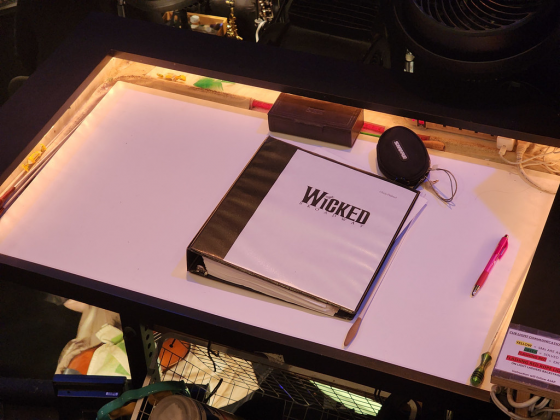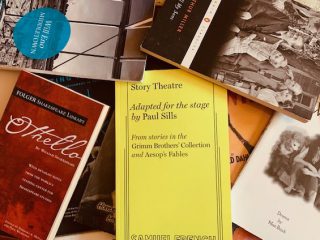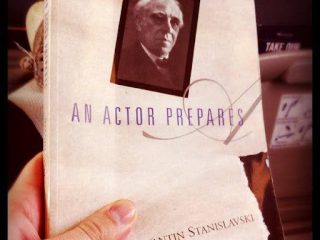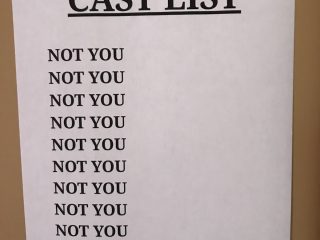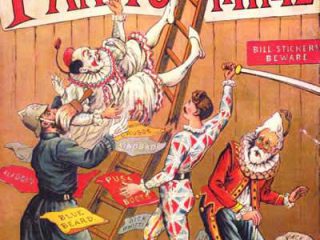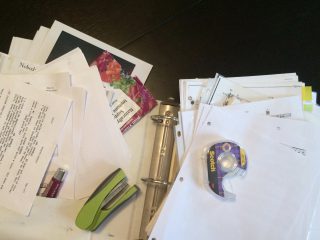Many performers waste an excessive amount of time trying to decipher precisely what the individuals in the audition room are seeking. Instead of investing your precious energy trying to mold yourself into perceived expectations of the people behind the table, why not spend that time instead figuring out how to showcase your authentic self?
Start by realizing that you are unique in the world. There is only one of you. As a performer, the gifts you bring to a role are different from those of anyone else who will be auditioning. The challenge is figuring out what your special gifts are and then working out how to best showcase them.
Start by asking yourself these questions:
What do I do well?
What are your strongest selling points as a performer? Are you funny? Are you a great collaborator? Do you have a crazy vocal range? Identifying your strengths is the first step towards figuring out how to showcase your gifts in the audition room.
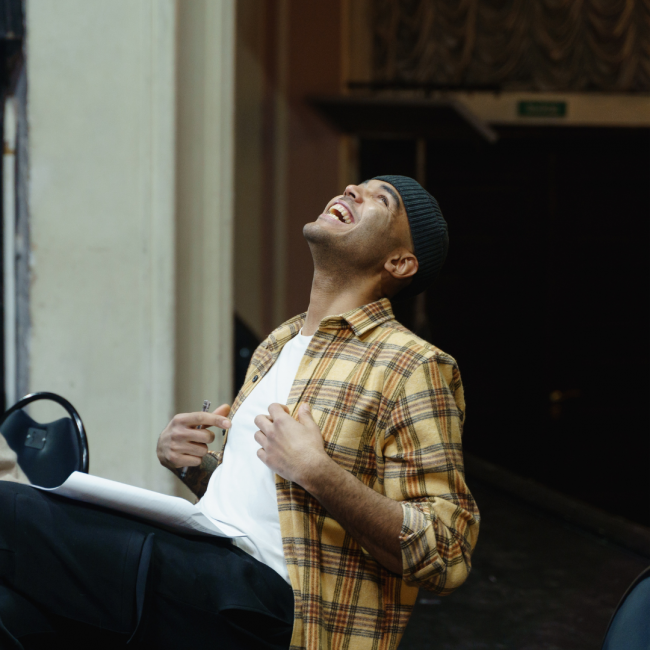
Is my material showing me off?
If one of your strongest selling points as a performer is your coloratura soprano, you certainly want to make sure your audition material is showcasing that. If you’re auditioning for a classical play and that’s your strength, make sure your audition material is age/sex/gender appropriate. You may make a great King Lear, but as a 20-year-old woman there is a plethora of more appropriate audition material for you.
How good are my communication skills?
Are you able to chat casually with folx inside and outside the room? Are you friendly and kind? Monitors often report back to the audition room. Make sure you are not identified as a gossip or a complainer in the waiting room. Once in the room, make sure to greet everyone. This can just be, “Hello, how’s your day going?” but make sure not to ignore anyone with your eye contact. Auditions have been won and lost on a performer’s inability to have genuine conversations and being perceived as standoffish or rude. Don’t let your nerves keep your personality hidden. Practice answering some simple questions when you are preparing your audition. We have a great blog post for more tips on this!
Are you as good on paper as you are in the room?
Your headshot and resume often get in the audition room before you do. Do they represent you well? Casting folx will often scan your resume to see who you’ve worked with. Make sure you spell everyone’s names correctly – and don’t lie!
Does your headshot look like you usually do when you walk in the audition room? The goal is not to have the most glamorous headshot. You want a photo that looks like you so when you leave, the photo will be able to remind the casting team what you looked like.

How well do I take adjustments?
When auditioning with sides, the director will sometimes give you some feedback after your initial audition. If they ask you to make some changes to your performance, make sure you listen to what they are asking for. If you don’t understand what’s being asked of you, ask a clarifying question. The team may want to see the material in a different way or they may just want to see how well you listen. Either way, it’s important to try to do what’s asked of you and make the next read different from your first. We have some more great tips here on how to take an adjustment well.
What’s my visual?
How do you dress for auditions? Do you feel great in your outfit and does it present your authentic self? If you see yourself as cheerful, friendly, with a flair for comedy, maybe wearing all black is not the best audition outfit choice. Many performers have a go-to outfit they wear to all auditions. This allows you to have one less thing to stress over on audition day.
Am I being brave?
Don’t be afraid to share yourself with the room. Auditioning is hard – we know that. But taking risks with the audition material and sharing your gifts with the room is the only way they are going to get to see your authentic self.
Doing the work to identify and bring your authentic self into the audition room will be challenging. A great way to stay accountable is journaling. After each audition, take the time to make an entry, reflecting on what went well, noting responses from the room, and establishing goals for future auditions.
By consistently infusing your genuine self into auditions, you’ll likely experience greater success. It’s important to acknowledge that not every audition will result in booking the role, but the satisfaction derived from being able to bring your authentic self into the audition room will undoubtedly enhance your overall auditioning experience.
Looking for more audition tips? Checkout our blog posts on how to choose the right audition material and how to rehearse a monologue!
You can also discover more advice on knowing your true essence as a performer in this episode of StageAgent’s Meet the Theatre Artist series.

